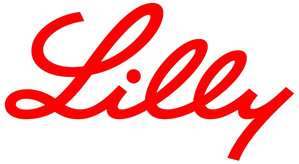INDIANAPOLIS, Dec. 13, 2012 /PRNewswire/ -- Eli Lilly and Company (NYSE: LLY) announced today that it will stop one of three Phase 3 rheumatoid arthritis (RA) registration studies of tabalumab, an anti-BAFF monoclonal antibody, due to insufficient efficacy. The decision followed a planned interim futility analysis of the FLEX-M study investigating tabalumab, also known as LY2127399, for the treatment of patients with moderate-to-severe RA who had an inadequate response to methotrexate therapy. The decision was not based on safety concerns, and patients currently enrolled in other tabalumab RA studies will continue treatment.
The FLEX-M study was designed to support registration of tabalumab as a potential treatment for RA, including an assessment of its effect on structural progression. Lilly continues to evaluate tabalumab in two other Phase 3 RA registration studies as well as an open-label extension study and several other smaller studies. Lilly is suspending enrollment of new patients in the RA program until additional analysis from other ongoing RA studies is completed in early 2013. These other studies are in different patient populations.
Phase 3 studies for systemic lupus erythematosus are ongoing and will continue to enroll new patients. Currently, there is no evidence to suggest that efficacy results from the FLEX-M study in RA are indicative of potential efficacy in the lupus population. Lilly remains committed to the ongoing Phase 3 lupus program.
"The results of this study were unexpected given the data generated in earlier Phase II clinical studies of tabalumab," said Eiry Roberts, M.D., vice president of autoimmune product development at Lilly. "We remain committed to patients with rheumatoid arthritis and lupus and will move rapidly to evaluate the impact of these data on the overall tabalumab clinical development program. Beyond tabalumab, Lilly will continue to develop additional treatment options for patients with autoimmune diseases."
The decision to stop the FLEX-M study is expected to result in a fourth-quarter charge in the range of $20 million to $35 million (pre-tax), or approximately $0.02 per share (after-tax). The company's previously issued financial guidance for 2012 remains unchanged.
About the FLEX-M Study
The FLEX-M study (study BCDM) is a Phase 3, multicenter, randomized, double-blind, placebo-controlled study to evaluate the efficacy and safety of tabalumab in patients with moderate-to-severe rheumatoid arthritis who had an inadequate response to methotrexate therapy. This pivotal registration study includes the assessment of the effect of tabalumab on structural progression.
About BAFF and Tabalumab
BAFF (B cell activating factor) is a cytokine that promotes B cell survival, proliferation and activation. In the presence of excess BAFF, B cells, including autoreactive B cells, are not appropriately eliminated by the immune system and may therefore contribute to the development of RA by producing autoantibodies and proinflammatory cytokines and "helping" autoreactive T cells. BAFF exists in both membrane-bound and soluble forms.
Tabalumab is a human immunoglobulin G subclass 4 (IgG4) monoclonal antibody (MAb) that inhibits both membrane-bound and soluble B cell activating factor (BAFF). Tabalumab is currently in Phase 3 development as a potential treatment for rheumatoid arthritis and systemic lupus erythematosus.
About Lilly's Autoimmune Pipeline
Tabalumab is one of three potential new medicines in late-stage clinical development for a variety of autoimmune conditions. The others are ixekizumab, an anti-IL-17 monoclonal antibody, for psoriasis and psoriatic arthritis, and baricitinib, a JAK1 and JAK2 inhibitor being developed in collaboration with Incyte Corporation, for RA, psoriasis and diabetic nephropathy.
About Lilly's Pipeline
Lilly currently has a number of unique potential medicines in its Phase 3 clinical development pipeline, representing a variety of therapeutic areas including diabetes (four), cancer (three), neuroscience (two), autoimmunity (three) and cardiovascular (one). To learn more about the molecules in Lilly's clinical development pipeline, please visit Lilly's interactive pipeline website available at Lilly.com/pipeline.
About Eli Lilly and Company
Lilly, a leading innovation-driven corporation, is developing a growing portfolio of pharmaceutical products by applying the latest research from its own worldwide laboratories and from collaborations with eminent scientific organizations. Headquartered in Indianapolis, Ind., Lilly provides answers -- through medicines and information -- for some of the world's most urgent medical needs. Additional information about Lilly is available at www.lilly.com.
This press release contains forward-looking statements about the potential of tabalumab for the treatment of rheumatoid arthritis and lupus, and reflects Lilly's current beliefs. However, as with any pharmaceutical product, there are substantial risks and uncertainties in the process of development and commercialization. There is no guarantee that the compound will receive regulatory approval, or that it will be commercially successful. For further discussion of these and other risks and uncertainties, see Lilly's filings with the United States Securities and Exchange Commission. Lilly undertakes no duty to update forward-looking statements.
P-LLY
(Logo: http://photos.prnewswire.com/prnh/20031219/LLYLOGO )
SOURCE Eli Lilly and Company
WANT YOUR COMPANY'S NEWS FEATURED ON PRNEWSWIRE.COM?
Newsrooms &
Influencers
Digital Media
Outlets
Journalists
Opted In





Share this article